10% off £35
Face Exfoliators & Scrubs
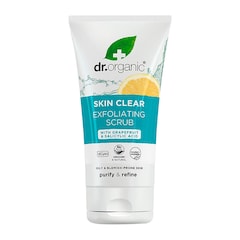
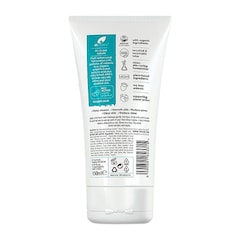
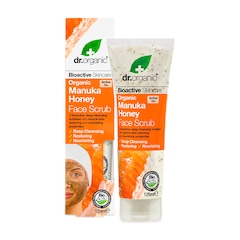
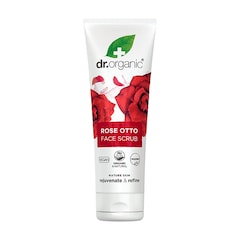
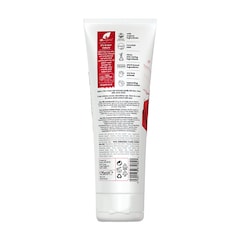
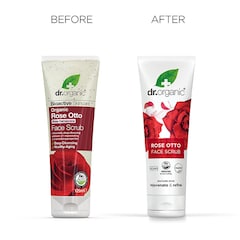
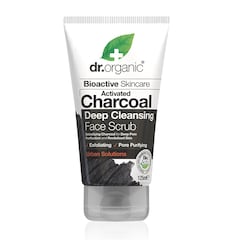
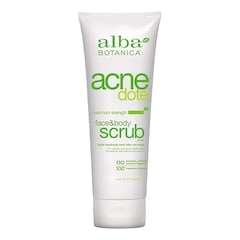
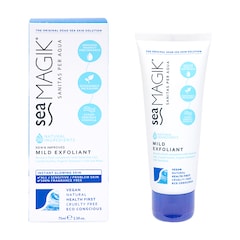
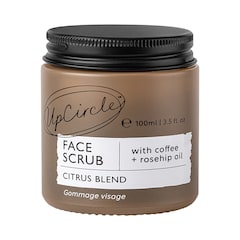
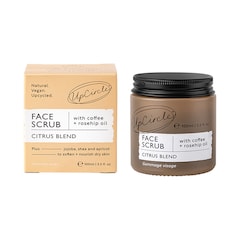
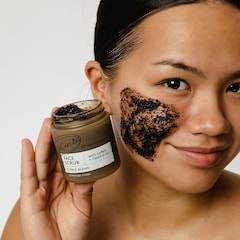
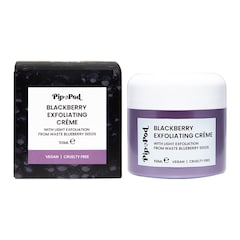
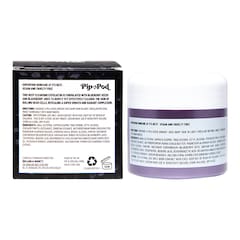
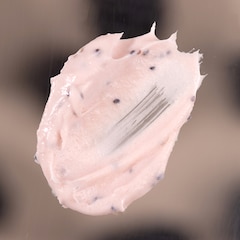
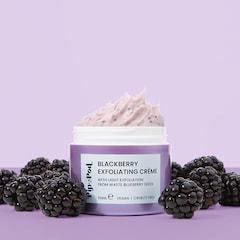
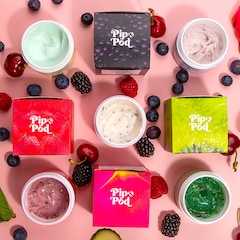
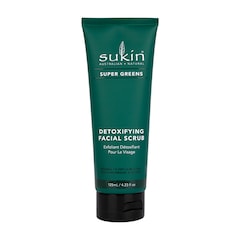
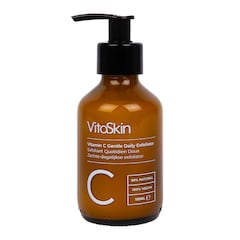
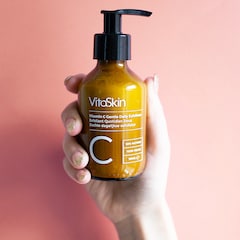
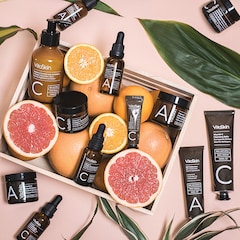
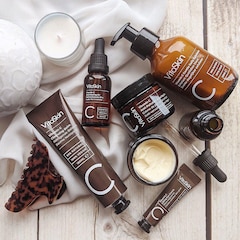
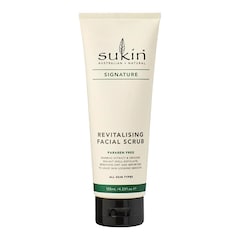
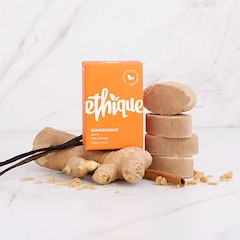
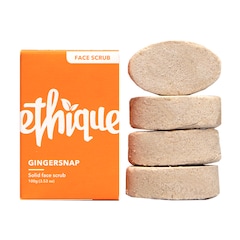
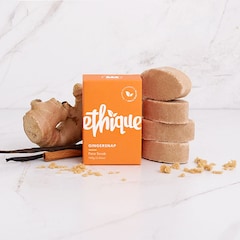
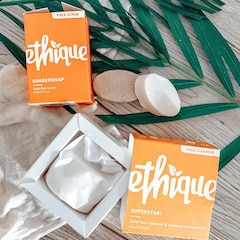
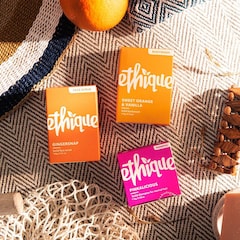
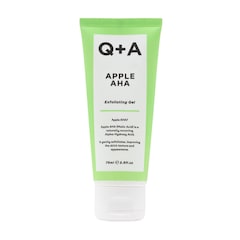
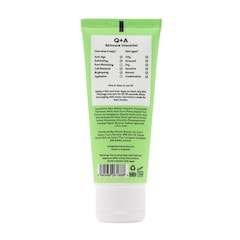
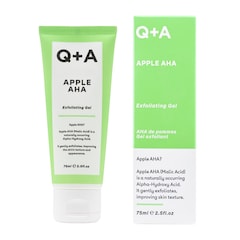
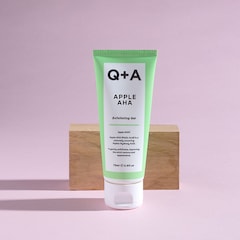
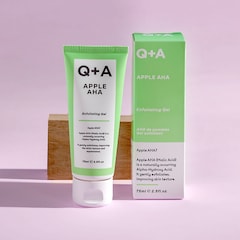
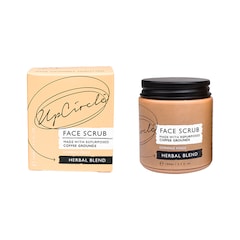
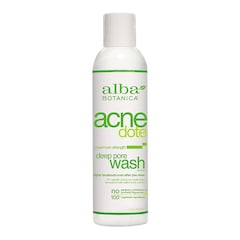
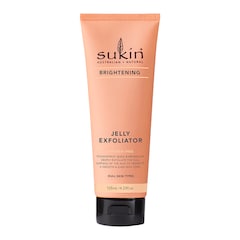
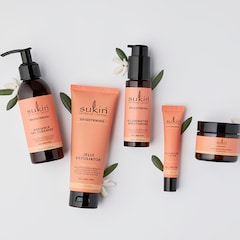
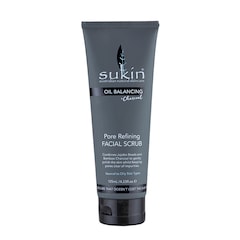
When you want something to look fantastic, you start the process by clearing it of dirt and debris in order to make it really shine.
And if you do this to anything else, you should apply the same logic to your skin.
Why should I exfoliate?
As skin cells die, they should naturally fall away from your face, but often they do not.
That means you do not get to see the fresh, new cells underneath.
These dead skin cells can then start to clog the skin, and leave it looking dark and sallow.
In addition to this, we start to attract all sorts of dirt and debris to our faces all throughout the day. This can be dust, pollutants and tiny particles in the air, which can gather on the skin.
All of this sounds like something you want to get rid of, which is why the process of exfoliating the skin is so important.
What does exfoliation do for your skin?
A natural exfoliator or scrub will contain very small particles which help to slough away these skin cells and debris gently.
The particles vary in size, according to which area of the body they are to be used on. And as the skin on the face is very delicate, a facial exfoliator should use extremely fine grains.
The benefits of exfoliating are many, but the main one is to reveal the fresh new skin beneath, which gives you a healthy glow and can seem to help reduce the appearance of lines and wrinkles.
What is the difference between an exfoliator and a scrub?
The main difference between a natural face scrub and an exfoliator is the method of delivery.
A scrub such as the Ayumi Turmeric Face Scrub is usually cream-based, with the tiny particles inside it.
This one is packed with bamboo powder to create the exfoliating effect, as well as papaya extract, avocado oil, shea butter, argan oil and bergamot oil to leave skin clean and smooth.
But an exfoliator can still be natural as the Sea Magic Mild Exfoliant proves.
This gentle spa exfoliation treatment combines Dead Sea minerals with coconut oil and shea butter, to reveal a fresh and radiant complexion. It is suitable for all skin types and has an ocean-friendly formulation.
What you put into your scrub is important too, and a charcoal face scrub is in high demand. The Dr Organic Charcoal Face Scrub contains activated charcoal which eliminates dirt and impurities, giving a cleansing effect and leaving the skin feeling invigorated.
How often should I exfoliate my skin?
This will really depend on your skin and how sensitive it is, but two to three times a week is usually the maximum that most people can stand.
However, there are now some great products such as the Vitaskin Vitamin C Gentle Daily Exfoliator which are gentle enough to use more regularly.
This product combines vitamin C with sweet orange and kiwi seed oil, to both help give your skin a boost and a glow.
Exfoliating scrub bars and mitts
Another way to exfoliate your skin is to use a facial scrub bar like the Ethique Gingersnap Face Scrub.
This bar simply needs wetting and buffing across the face in small circles. Then simply massage into the skin and rinse away.
The brown sugar, ginger and cinnamon combine to cleanse and exfoliate, and it prevents the production of three plastic bottles and the use of 1.2 litres of water.
There are many ways to exfoliate your skin without the use of any products.
The So Eco Exfoliating Glove use natural ramie fibres.
This can be used on the body in circular motions to remove dead skin cells in a zero-waste way.
Our skin needs care in all sorts of different ways, and the process of exfoliating both the face and body is very important.
By keeping the skin clear, it helps us to look fresher, whilst also allowing the other products that we use to be at their most effective.
When you want something to look fantastic, you start the process by clearing it of dirt and debris in order to make it really shine.
And if you do this to anything else, you should apply the same logic to your skin.
Why should I exfoliate?
As skin cells die, they should naturally fall away from your face, but often they do not.
That means you do not get to see the fresh, new cells underneath.
These dead skin cells can then start to clog the skin, and leave it looking dark and sallow.
In addition to this, we start to attract all sorts of dirt and debris to our faces all throughout the day. This can be dust, pollutants and tiny particles in the air, which can gather on the skin.
All of this sounds like something you want to get rid of, which is why the process of exfoliating the skin is so important.
What does exfoliation do for your skin?
A natural exfoliator or scrub will contain very small particles which help to slough away these skin cells and debris gently.
The particles vary in size, according to which area of the body they are to be used on. And as the skin on the face is very delicate, a facial exfoliator should use extremely fine grains.
The benefits of exfoliating are many, but the main one is to reveal the fresh new skin beneath, which gives you a healthy glow and can seem to help reduce the appearance of lines and wrinkles.
What is the difference between an exfoliator and a scrub?
The main difference between a natural face scrub and an exfoliator is the method of delivery.
A scrub such as the Ayumi Turmeric Face Scrub is usually cream-based, with the tiny particles inside it.
This one is packed with bamboo powder to create the exfoliating effect, as well as papaya extract, avocado oil, shea butter, argan oil and bergamot oil to leave skin clean and smooth.
But an exfoliator can still be natural as the Sea Magic Mild Exfoliant proves.
This gentle spa exfoliation treatment combines Dead Sea minerals with coconut oil and shea butter, to reveal a fresh and radiant complexion. It is suitable for all skin types and has an ocean-friendly formulation.
What you put into your scrub is important too, and a charcoal face scrub is in high demand. The Dr Organic Charcoal Face Scrub contains activated charcoal which eliminates dirt and impurities, giving a cleansing effect and leaving the skin feeling invigorated.
How often should I exfoliate my skin?
This will really depend on your skin and how sensitive it is, but two to three times a week is usually the maximum that most people can stand.
However, there are now some great products such as the Vitaskin Vitamin C Gentle Daily Exfoliator which are gentle enough to use more regularly.
This product combines vitamin C with sweet orange and kiwi seed oil, to both help give your skin a boost and a glow.
Exfoliating scrub bars and mitts
Another way to exfoliate your skin is to use a facial scrub bar like the Ethique Gingersnap Face Scrub.
This bar simply needs wetting and buffing across the face in small circles. Then simply massage into the skin and rinse away.
The brown sugar, ginger and cinnamon combine to cleanse and exfoliate, and it prevents the production of three plastic bottles and the use of 1.2 litres of water.
There are many ways to exfoliate your skin without the use of any products.
The So Eco Exfoliating Glove use natural ramie fibres.
This can be used on the body in circular motions to remove dead skin cells in a zero-waste way.
Our skin needs care in all sorts of different ways, and the process of exfoliating both the face and body is very important.
By keeping the skin clear, it helps us to look fresher, whilst also allowing the other products that we use to be at their most effective.


